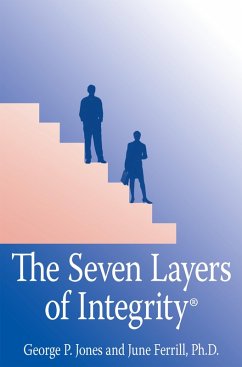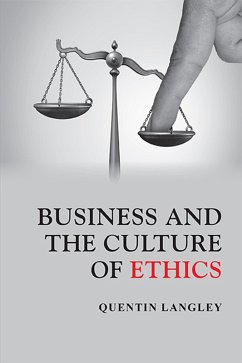"Can you teach people to behave ethically?"
That's the question being asked by business leaders and business school administrators across
The Seven Layers of Integrity® both answers that question and provides a model that serves as a learning tool and a decision-making mechanism.
The authors believe people can be taught to behave ethically - and they start by examining the reason people raise this question in the first place.
Common thinking is that by the time people reach adulthood their value systems are already in place - they are either ethical or not ethical. This is classic contemporary American thinking characterized by binary, mutually exclusive options; sound bite analysis; and an easy litmus test for the integrity of degree candidates, job applicants and business people. As with most ideas having these characteristics, it falls apart under even limited scrutiny.
The solution to the business ethics problem lies in corporate culture, and the authors speak from their own familiarity, after years of business consulting, with the impact of corporate culture on human behavior.
The number of ethical dilemmas available to the human race is without limits. Therefore, it is imperative that we teach people how to think about the decisions they may face.
Management and employees need an understanding of how to analyze and resolve the day-to-day ethical questions encountered in a business setting. Standards of behavior do exist and The Seven Layers of Integrity® provides a method for examining those standards.
But in addition, business people should have a process to use when encountering new territory, a model that helps to clarify their thinking and a basic understanding of how to recognize and resolve ethical problems in business operations.
This book presents that method.
That's the question being asked by business leaders and business school administrators across
The Seven Layers of Integrity® both answers that question and provides a model that serves as a learning tool and a decision-making mechanism.
The authors believe people can be taught to behave ethically - and they start by examining the reason people raise this question in the first place.
Common thinking is that by the time people reach adulthood their value systems are already in place - they are either ethical or not ethical. This is classic contemporary American thinking characterized by binary, mutually exclusive options; sound bite analysis; and an easy litmus test for the integrity of degree candidates, job applicants and business people. As with most ideas having these characteristics, it falls apart under even limited scrutiny.
The solution to the business ethics problem lies in corporate culture, and the authors speak from their own familiarity, after years of business consulting, with the impact of corporate culture on human behavior.
The number of ethical dilemmas available to the human race is without limits. Therefore, it is imperative that we teach people how to think about the decisions they may face.
Management and employees need an understanding of how to analyze and resolve the day-to-day ethical questions encountered in a business setting. Standards of behavior do exist and The Seven Layers of Integrity® provides a method for examining those standards.
But in addition, business people should have a process to use when encountering new territory, a model that helps to clarify their thinking and a basic understanding of how to recognize and resolve ethical problems in business operations.
This book presents that method.
Dieser Download kann aus rechtlichen Gründen nur mit Rechnungsadresse in A, D ausgeliefert werden.









